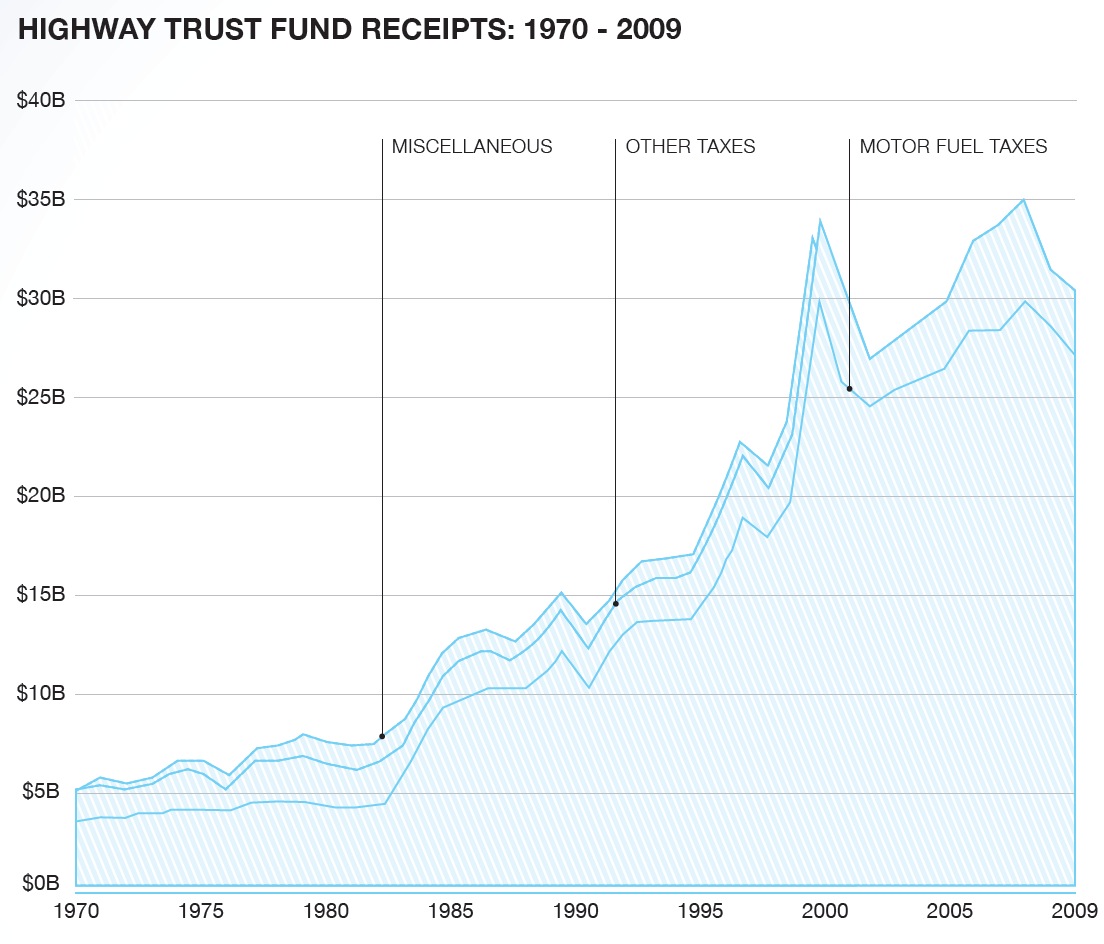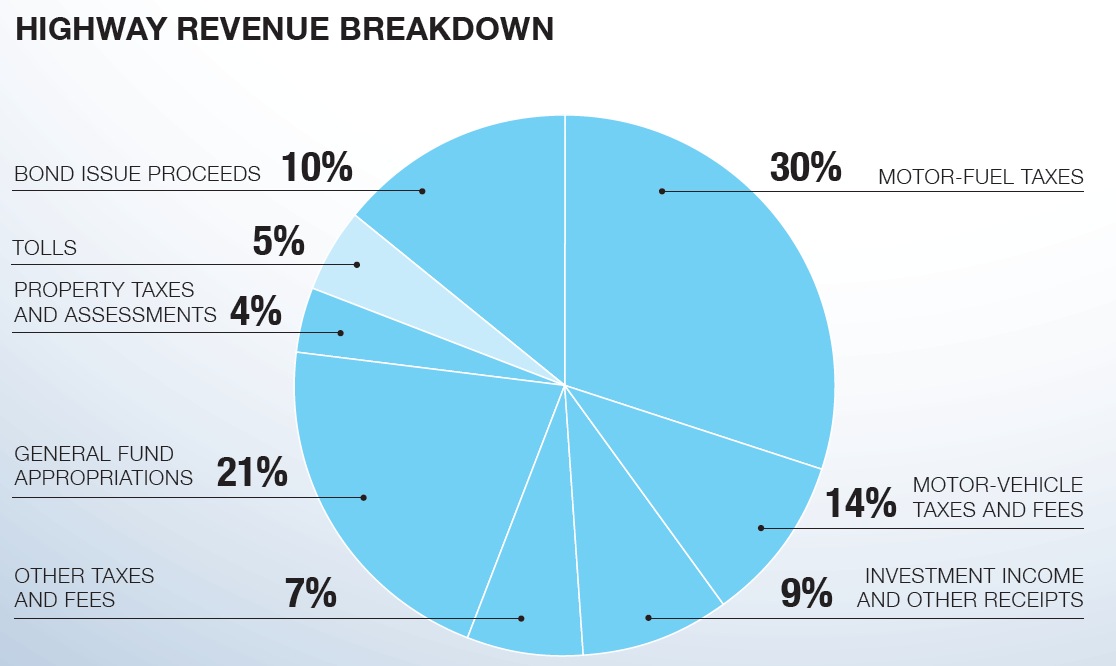INTERNATIONAL BRIDGE, TUNNEL AND TURNPIKE ASSOCIATION (IBTTA)
Tolling Provides Answers to America’s Transportation Needs
 Q: Why do we need tolls to pay for roads and crossings?
Q: Why do we need tolls to pay for roads and crossings?
A: No matter how you slice it, federal and state fuel taxes are insufficient to support America’s highway infrastructure. Tolls provide a valuable source of revenue both to build new roads and maintain existing roads.
Q: How do tolls benefit the average American?
A: The primary benefits are better, safer roads; less congestion; more predictable trip times and reduced need for taxes to pay for roads. Tolls provide money today for projects that can be built in the near future and meet demand for decades to come. If it were not for tolls, many of the best roads and bridges in the US might never have been built.
Q: Isn’t a toll just another tax?
A: No, tolls are voluntary user fees. Drivers can choose to pay tolls or take alternate routes, whereas taxes are mandatory and charged to everyone. Yes, customers of toll facilities also pay taxes, but the taxes are used to fund non-toll roads. Since toll roads are primarily self-financed and do not rely on taxes, the customer is not paying twice for the facility. In fact, without tolls, taxes would be higher.
 Q: What about public opposition to the idea of new tolls?
Q: What about public opposition to the idea of new tolls?
A: Revenue-raising measures are never popular, especially in a time of economic stress. The federal fuel tax has not been raised since 1993. However, numerous toll facilities have been approved in the anti-tax environment of recent decades, and opinion polls consistently show that motorists prefer tolls over taxes and support the expansion of toll roads to improve driver options and travel times. In one poll, 84 percent of Americans said tolls should be considered as a primary source of transportation revenue or on a project-by-project basis.
Q: Does tolling slow the flow of traffic?
A: Toll roads tend to be less congested than tax-funded roads, where unrestricted access often leads to congestion. Toll roads also lead to time savings and congestion relief on nearby roadways by increasing the total road capacity available. Moreover, with today’s technology, most toll operators are eliminating toll plazas and expanding their high-speed, automated tolling options. Most new facilities are being built as cashless systems, with no stopping or slowing down to pay a toll.
Q: How do toll roads compare to non-tolled roads in terms of safety?
A: Toll roads are generally safer than non-tolled roads due to better maintenance, pavement, and technology. Toll operators employ state-of-the-art technology to monitor road conditions and have a financial incentive to keep their roads running as safely and smoothly as possible. The facts bear this out, as toll facilities in the United States have a much lower fatality rate than US roads overall.
Q: Is tolling fair to low-income motorists?
A: Many surveys have shown that drivers of all income levels use tolled facilities and support having the option to use high-quality toll roads. A well-designed pricing plan can be less burdensome to low-income citizens than systems that are based on regressive taxes, such as car registration fees, sales taxes and the gasoline tax.
Q: Won’t tolls increase consumer prices by driving up the cost of trucking?
A: The poor state of our roads and bridges is already raising consumer prices through congestion, lost time and higher operating costs for trucking companies. The most recent Urban Mobility Report by the Texas Transportation Institute found that highway congestion cost the United States $101 billion in 2010 and will rise to $133 billion by 2015. By increasing the quality of infrastructure and easing congestion, tolls can produce cost savings for truckers and all consumers.
Download full version (PDF): 2015 Report on Tolling in the United States
About the International Bridge, Tunnel and Turnpike Association (IBTTA)
ibtta.org
The International Bridge, Tunnel and Turnpike Association (IBTTA) is the worldwide association representing toll facility owners and operators and the businesses that serve them.
Tags: IBTTA, International Bridge, Toll Roads, Tolls, Tunnel and Turnpike Association






 RSS Feed
RSS Feed